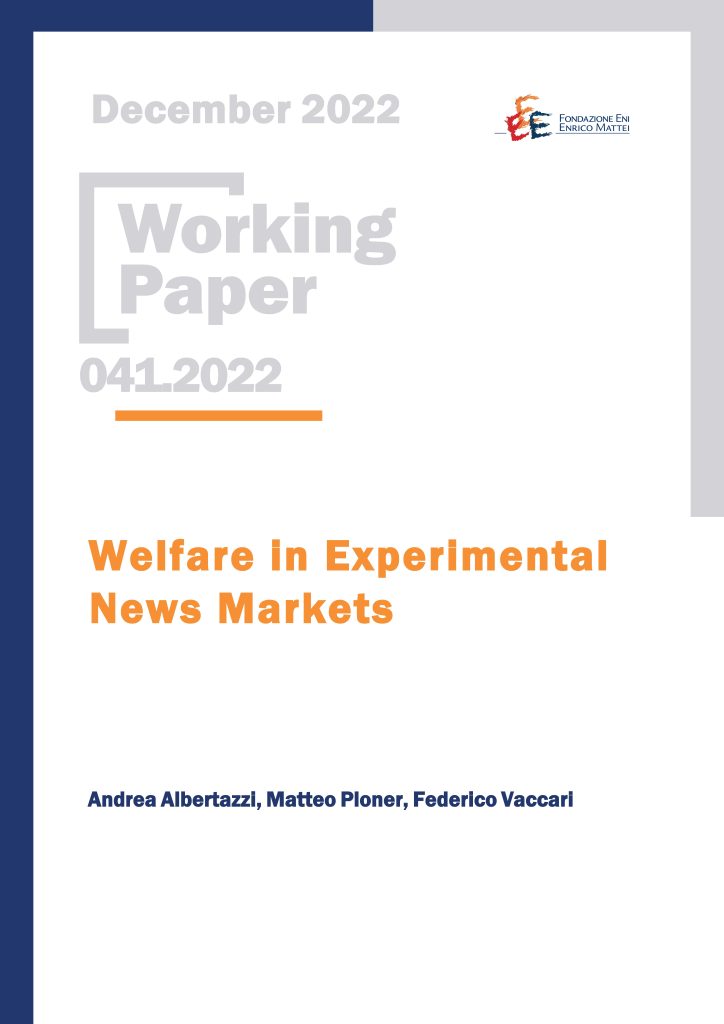Welfare in Experimental News Markets

06.12.2022
Andrea Albertazzi (Department of Economics and Statistics, University of Siena); Matteo Ploner (Department of Economics and Management, Cognitive and Experimental Economics Lab, CEEL, University of Trento); Federico Vaccari (Laboratory for the Analysis of Complex Economic Systems, IMT School of Advanced Studies)
C72, C92, D60
Experiment, Welfare, Multiple senders, Competition, Sender-receiver games
We perform a controlled experiment to study the welfare effects of competition in a strategic communication environment. Two equally informed senders with conflicting interests can misreport information at a cost. We compare a treatment where only one sender communicates to a treatment where both senders privately communicate with a decision-maker. Data show that competition between senders does not increase the amount of information decision-makers obtain. We find evidence of under-communication, as the information transmitted is lower than what theory predicts in the most informative equilibrium. Senders are worse off under competition because their relative gains from persuasion are more than offset by their expenditures in misreporting costs. As a result, competition between senders reduces the total welfare.
***
Suggested citation: F. Vaccari, ‘Welfare in Experimental News Markets’, Nota di Lavoro 041.2022, Milano, Italy: Fondazione Eni Enrico Mattei
